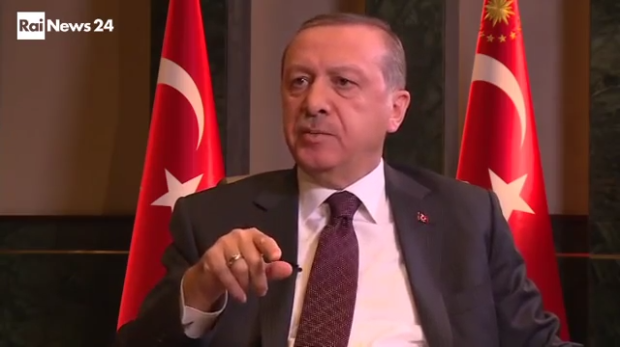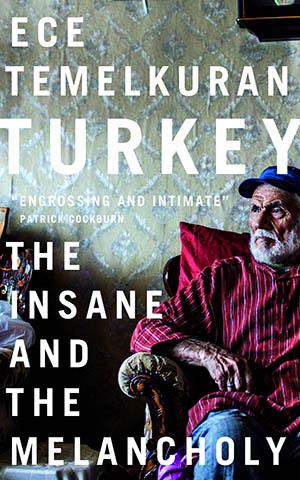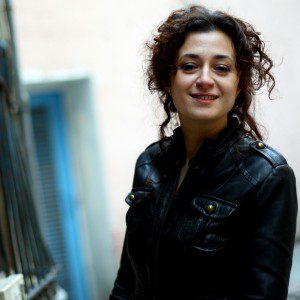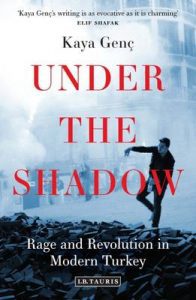25 Nov 2016 | News and features, Turkey, Turkey Uncensored
[vc_row][vc_column][vc_column_text]
Straddling the division between Europe and Asia, since 1923 the idealised dream of Turkey has been a secular, modern and democratic country. Although weakened by military coups, the imperfect multi-party democracy survived until recently when president Recep Tayyip Erdoğan declared his ambitions for a presidential regime.
While he is already the only political power dominating the entire political scene, July’s coup attempt allowed him to start a massive witch hunt to suppress his political opponents. Half of the country resists him while the other half offers unquestionable support. The nation is split.
Many believe Turkey has entered the last stage of political disarray. The country now has more jailed journalists than China, it has closed more than 370 NGOs under emergency law and it recently imprisoned a number of Kurdish MPs.
But Turkey is not a standalone case. After the election of Donald Trump in the US, the world woke up to the threat posed by populist leaders who have gained unprecedented support in mobilising the masses against the fundamental values of democracy in several countries. These leaders are more similar to Erdogan than we like to think. Therefore polarized, increasingly authoritarian Turkey, located at the door of Europe, might be the example to follow carefully in order to understand what to expect from the bleak future of democracy.
This is my diary of our interesting times.
12 Nov: The Turks want to share their rich experience of political trauma with the Americans, as Erdogan is among the first group of world leaders to congratulate Trump, followed by Sisi and Le Pen. This is party time for the global mobalisation of organised ignorance. Disappointed Americans should prepare themselves for a full-scale war against the system of liberal values by the banal. This won’t be with House of Cards sophistication, because this isn’t Arendt’s “banality of evil” but the evil of mobilised banal.
13 Nov: A literary event in Zagreb feels irrelevant when friends who are writers are in prison. My heart is pounding at the passport line. These days you never know when they will confiscate your passport by reporting it “lost”. Now I know why Walter Benjamin was too late to leave Nazi Germany. You never know when is too late. I think a lot about Frankfurt School crew nowadays while playing a dangerous hopscotch on borders.
15 Nov: American actress Lindsay Lohan jokes have become the the latest PR tool of the Turkish government. The Erdogan-loving actress said on Turkish channels a few days ago: “In Turkey you have free will as a woman, it’s amazing here.” It is not only the evil but also the bizarre we are struggling with. Interior Minister said, “Come and open the 370 NGO’s if you can,” the Interior Minister announced recently. The self-confidence of this ignorance is paralysing.
16 Nov: A government-supporting paper reports on the today’s mine disaster: “Eight trucks and some miners are stuck”. Oxford Dictionary unveils “post-truth” as the word of 2016. It means “relating to or denoting circumstances in which objective facts are less influential in shaping public opinion.” The “fact” is that sixteen miners were stuck and the “truth” is that precision to lead with the number of truck damaged is shameful.
17 Nov: AKP MP’s put forward a motion for amnesty for sexual assailants of minors should they marry their victims. A last minute intervention from the main opposition MP’s stopped the motion, only to be negotiated again next week. This is what I mean when by an attack human values. One morning you find yourself saying: “No, you cannot marry the minors to their rapists.”
19 November: It turns out the new law also rescues all the assailants if the victim is married to one of her rapists. This is nauseating. Women are shocked and furious. Reaction is intense.
22 Nov: “Shock and awe politics” has worked perfectly again. Erdogan, as if he is unaware of the child abuse law, said that draft should be renewed. While everybody was busy with the insane law, more leading Kurdish political figures were imprisoned. This is how they do it. They get you busy by shaking the unquestionable human values as the side show and meanwhile do other things. CNN is now “discussing” the American alt-right’s Richard Spencer’s and his question of whether or not Jews are humans, just like Turkish media “discussed” the minor’s marriage to their rapists. Women’s organisations are gathering in front of the parliament to protest.
Hey Lindsay, it is really amazing here!
In her new book, Turkey: the Insane and the Melancholy, journalist and author Ece Temelkuran discusses the role of the Turkish ministry of culture in censoring theatre productions.

Turkey Uncensored is an Index on Censorship project to publish a series of articles from censored Turkish writers, artists and translators.
[/vc_column_text][/vc_column][/vc_row][vc_row][vc_column][vc_basic_grid post_type=”post” max_items=”4″ element_width=”6″ grid_id=”vc_gid:1485774853759-05b85f69-9fa3-6″ taxonomies=”8607″][/vc_column][/vc_row]
23 Aug 2016 | News and features, Turkey, Turkey Uncensored
 In an extract from her new book, Turkey: the Insane and the Melancholy, journalist and author Ece Temelkuran discusses the role of the Turkish ministry of culture in censoring theatre productions. Temelkuran will be speaking at Waterstones Trafalgar Square on 20 Sept.
In an extract from her new book, Turkey: the Insane and the Melancholy, journalist and author Ece Temelkuran discusses the role of the Turkish ministry of culture in censoring theatre productions. Temelkuran will be speaking at Waterstones Trafalgar Square on 20 Sept.
In 2013, the Ministry of Culture began to evaluate its subsidies to private theatres under the criterion of being “suitable with regard to public decency”. This enforcement arose as part of the Turkey Art Association (TÜSAK), which was put forward in a bill advocating the audition and support of art associations affiliated with the state. In this way, the legal foundation for state-imposed censorship was laid.
For the evaluation of private theatre companies’ grant requests to the Ministry of Culture, submission of the play’s script was made obligatory. Shakespeare’s Macbeth was removed from the State Theatre repertoire in 2014.
In December 2014, Sevket Demirkaya, who had previously held positions such as wrestling referee and municipal police chief, was appointed Director of the Istanbul Metropolitan Municipality Theatre Company. In 2013, the Ministry of Culture cut off its funding to the company of Genco Erkal, one of the most acclaimed stage personalities in Turkey, for supporting the Gezi protests. The Directorate General of State Opera and Ballet prohibited the wearing of certain garments, including leggings, in October 2014.
Theatre wasn’t the only thing Erdogan had a beef with, naturally. He was also passionate about sculpture. On 8 January 2011, during election preparations in Kars – a place the whole world is familiar with thanks to Orhan Pamuk’s novel Snow – he was once again yelling, “Freak show!”
The freak show in question was an enormous statue. The mayor, a member of his own party, was having a peace statue built in the city bordering Armenia, a statue that could be seen from Erivan. The work, by one of Turkey’s most renowned sculptors, Mehmet Aksoy, had just been completed when it turned out that it didn’t suit Erdogan’s tastes. A few months after Erdogan appraised the sculpture as a “freak show”, it was demolished in spite of every court ruling, and at quite a high cost. The worst part about it all was the cry of “the people” as they set about its destruction:
“Allahu akbar!”
I suppose that the intellectuals who were irked when I suggested that sometimes Turkey was like Afghanistan with a nicer shop window, who thought it “elitist and Jacobin”, probably shared my apprehensions on the day they witnessed that savage and wanton destruction.
Erdogan was also interested in music. That was why the work of Fazıl Say, a world-renowned composer and pianist who was critical of the AKP administration, was immediately removed from the repertoire of the Presidential Symphony Orchestra.
Perhaps the eeriest of these persecutions over the years came in December 2011, from the Minister of Internal Affairs. The Minister said: “The backyard of terrorism, walking around the back, and by backyard this could be Istanbul, could be Izmir, Bursa, Vienna, Germany, London, wherever – it could be a podium at the university, an association, a non-governmental organisation … They look like they’re just singing but they say something to the audience in between three songs, squeeze in a few lovely words. Whatever you take from it, however you understand it. They’re making art on that stage. What can you do? We are not against art, but we have to weed these out with the meticulousness of a surgeon.”
I wish the best of luck to the translator who has to translate these words. I hope readers, too, will manage to keep their wits intact after so much of the government’s poor self-expression.
In the wake of these declarations that signalled a new onslaught of custody and persecution, artists came up with a parody petition:
“Ban art! Put art within the scope of terrorist activity!”
This is an extract from Turkey: the Insane and the Melancholy (Zed Books, 2016) by Ece Temelkuran, which is available now.
Ece Temelkuran will be participating in two upcoming events:
15 Sep: The State of Turkey with Kaya Genç, Ece Temelkuran and Daniel Trilling
Join Index on Censorship magazine’s contributing editor Kaya Genç and fellow Turkish writer Ece Temelkuran for a discussion about the state of Turkey in the aftermath of the failed military coup.
20 Sep: Author Ece Temelkuran on the struggles that have shaped Turkey
Join Index on Censorship’s CEO Jodie Ginsberg as she presents an evening with award-winning journalist and novelist Ece Temelkuran to discuss her latest book Turkey: The Insane and the Melancholy.

Turkey Uncensored is an Index on Censorship project to publish a series of articles from censored Turkish writers, artists and translators.
8 Aug 2016 | Events, mobile

Award-winning Turkish writer Ece Temelkuran will discuss her latest release at Waterstones Trafalgar Square on 20 September
Join Index on Censorship’s CEO Jodie Ginsberg as she presents an evening with award-winning journalist and novelist Ece Temelkuran to discuss her latest book Turkey: The Insane and the Melancholy.
Temelkuran will talk about how her beloved home country’s struggles and tragedies have shaped Turkey and how taking on the AKP government caused her to lose her job as a journalist. She also sees hope in the Gezi Park protests of 2013, the HDP party’s 2015 electoral breakthrough and in the kindness of the country’s ordinary people. Also featuring the Middle East correspondent for the Independent, Patrick Cockburn.
When: Tuesday 20 September, 7pm
Where: Waterstones, Trafalgar Square (map)
Tickets: £2 from Waterstones. And also available in-store or via telephone 0207 839 4411
8 Aug 2016 | Events, mobile

Turkish writers Kaya Genç and Ece Temelkuran will join Daniel Trilling to discuss the state of Turkey
Join Index on Censorship magazine’s contributing editor Kaya Genç and fellow Turkish writer Ece Temelkuran for a discussion about the state of Turkey in the aftermath of the failed military coup.
Editor of the New Humanist, and author of Bloody Nasty People: The Rise of Britain’s Far Right, Daniel Trilling will chair the discussion about the past present, and future of Turkey at the London Review Bookshop on 15 September.
Genç’s Under the Shadow: Rage and Revolution in Modern Turkey is newly published by I.B. Tauris and Temelkuran’s Turkey: The Insane and the Melancholy was recently published by Zed Books.
When: Thursday 15 September, 7pm
Where: London Review Bookshop (map)
Tickets: £10 from the London Review Bookshop





